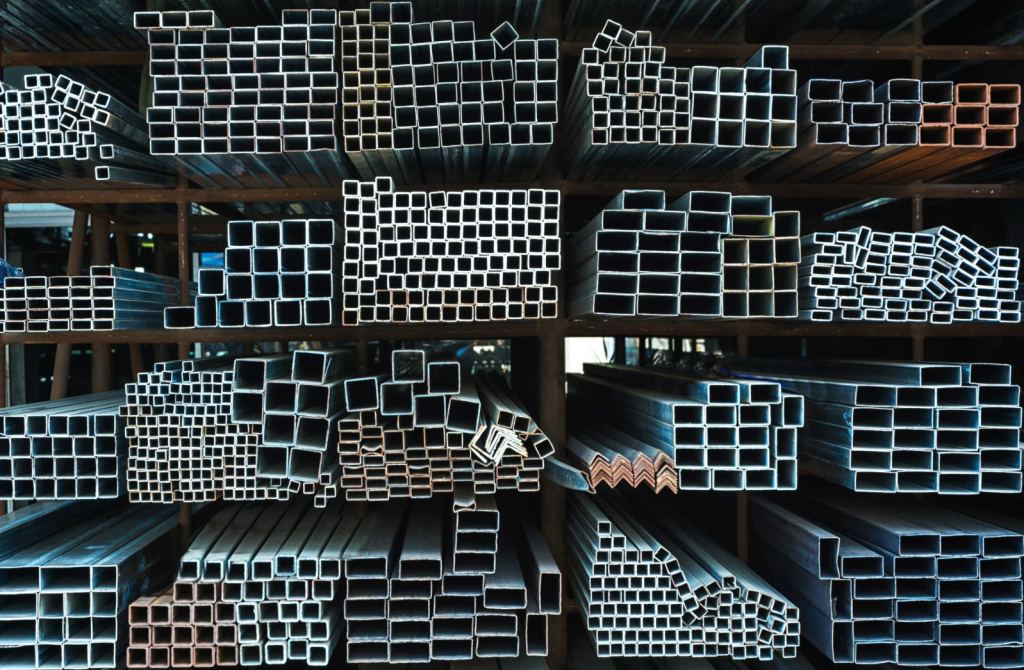Stainless steel has become a key material across a wide range of industries because of its durability, resistance to corrosion, and clean appearance. These properties not only extend the service life of products and equipment but also help maintain consistent performance under demanding conditions. Industries such as construction, automotive manufacturing, and food processing rely heavily on stainless steel to meet operational standards, reduce maintenance requirements, and improve overall efficiency.

Stainless Steel Applications Across Industries
The characteristics of stainless steel make it a reliable choice for many applications. Its strength and corrosion resistance allow structures and machinery to withstand challenging environments. In addition, its polished appearance and ease of maintenance make it a practical option for projects where aesthetics are also a priority. This combination of functional and visual benefits contributes to stainless steel’s widespread adoption in manufacturing, building design, and food production facilities.
Different grades of stainless steel are better suited to specific tasks. Austenitic steel, for instance, is commonly used in chemical processing and food manufacturing because it resists corrosion even when exposed to moisture, acids, or other harsh substances. Ferritic stainless steel is often chosen for automotive components, including exhaust systems and trim, due to its stability at high temperatures. Martensitic stainless steel is strong and hard, making it suitable for cutlery, surgical instruments, and precision tools. Understanding these variations helps companies select materials that align with both performance requirements and application environments.
Using high-grade stainless steel has clear operational advantages. Its resistance to wear and environmental factors reduces the need for frequent repairs and replacements. As a result, businesses experience fewer interruptions, lower maintenance costs, and smoother operations. Over time, this contributes to higher productivity and more predictable results in a variety of industrial settings.
Choosing the Right Stainless Steel Supplier
Supplier Reliability
Reliable stainless steel suppliers play a major role in keeping industrial processes consistent and efficient. Companies that work with dependable partners are less likely to face delays or quality issues, which helps maintain smooth production schedules and strong relationships with clients. Suppliers who can consistently deliver on time and meet agreed specifications are an asset in managing supply chains effectively.
Product Quality
Material quality directly influences the performance and reputation of finished products. Stainless steel that meets rigorous standards ensures durability, functionality, and visual appeal. High-quality materials support longer-lasting products, reducing the risk of failure in demanding applications. For manufacturers, this translates into stronger trust from customers and a positive impression in competitive markets.
Delivery and Logistics
The ability to handle deliveries efficiently is a critical factor when selecting a supplier. Businesses benefit from suppliers who manage inventory effectively, provide accurate lead times, and adapt to changes in demand or unforeseen circumstances. Evaluating delivery performance, historical reliability, and logistical capabilities helps determine whether a supplier can consistently meet operational needs.
Pricing Structure
Analysing pricing approaches is important for budgeting and cost management. A transparent pricing policy that reflects market standards allows businesses to plan expenditures with confidence. Competitive pricing combined with reliable quality creates value and supports long-term procurement strategies without compromising operational goals.
Sustainability and Environmental Practices
Environmental responsibility is increasingly significant in industrial operations. Suppliers who implement sustainable production methods and responsible sourcing help reduce ecological impact while supporting regulatory compliance. By prioritising practices that minimise waste, reduce energy consumption, and limit emissions, companies contribute to sustainable industrial growth without compromising product quality or performance.
Advantages of Partnering with Established Suppliers
Working with reputable suppliers offers tangible benefits beyond product quality. Materials sourced from trusted partners are more likely to perform consistently, reducing the risk of defects or failures. This reliability improves operational continuity, lowers maintenance and replacement costs, and allows businesses to maintain production schedules with confidence.
Reliable suppliers also strengthen supply chain stability. Clear communication and strong working relationships allow them to respond efficiently to fluctuations in demand, anticipate logistical challenges, and maintain adequate stock levels. These capabilities reduce operational uncertainty and help organisations meet deadlines more effectively.
Cost efficiency is another benefit. Access to quality materials at competitive rates reduces operational expenses and increases financial flexibility. Savings achieved through reliable sourcing and fewer replacements can be redirected toward expansion, research, or technology upgrades, which contribute to long-term growth and competitiveness.

Conclusion
Selecting the appropriate stainless steel and a dependable supplier has a direct impact on performance, reliability, and operational efficiency across industries. High-quality stainless steel ensures durability, reduces maintenance needs, and maintains the appearance and integrity of finished products. Working with established suppliers supports consistent delivery, cost-effective procurement, and operational stability. For businesses seeking materials that offer both reliability and quality, partnering with experienced stainless steel suppliers provides a solid foundation for long-term success.
…







Recent Comments